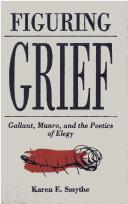| Listing 1 - 10 of 11 | << page >> |
Sort by
|
Book
ISBN: 3770531742 Year: 1998 Volume: 42 Publisher: München : W. Fink,
Abstract | Keywords | Export | Availability | Bookmark
 Loading...
Loading...Choose an application
- Reference Manager
- EndNote
- RefWorks (Direct export to RefWorks)
Book
Year: 2024 Publisher: Punctum Books
Abstract | Keywords | Export | Availability | Bookmark
 Loading...
Loading...Choose an application
- Reference Manager
- EndNote
- RefWorks (Direct export to RefWorks)
Book
Year: 2024 Publisher: Punctum Books
Abstract | Keywords | Export | Availability | Bookmark
 Loading...
Loading...Choose an application
- Reference Manager
- EndNote
- RefWorks (Direct export to RefWorks)
Book
ISBN: 1685711650 Year: 2024 Publisher: Punctum Books
Abstract | Keywords | Export | Availability | Bookmark
 Loading...
Loading...Choose an application
- Reference Manager
- EndNote
- RefWorks (Direct export to RefWorks)

ISBN: 1283396718 9786613396716 3110201518 3110181177 9783110181173 9783110201512 9781283396714 6613396710 Year: 2004 Publisher: Berlin de Gruyter
Abstract | Keywords | Export | Availability | Bookmark
 Loading...
Loading...Choose an application
- Reference Manager
- EndNote
- RefWorks (Direct export to RefWorks)
Nach dem politischen Verständnis der Frühen Neuzeit ist der Tod der regierenden Königin als Opfer zu begreifen, das die Kontinuität männlicher Herrschaft gewährleistet. Verweist das Leben der Monarchin auf die Stellvertretungsfunktion, die sie erfüllt, so ihr Sterben auf den Fortbestand der Institution der Krone, deren Dauer nur der König verkörpern kann. Der politische Sinn, den der Tod der Königin erzeugt, besteht darin, dass er die Ordnung der Macht in ähnlicher Weise symbolisch erfahrbar werden lässt, wie der Vorgang des rituellen Tötens die heilige Gewalt des Lebens. Peter-André Alt untersucht das politische Denken, das im Tod der Königin vergegenwärtigt wird, anhand deutscher und englischer Trauerspiele des 17. Jahrhunderts. Sein interdisziplinär angelegtes Buch, das auch Blicke auf die bildende Kunst und die Rechtshistorie wirft, ist ein Beitrag zur Geschichte der Souveränität und der sie begründenden Konstruktionen von Natur, Gewalt, Körper und Geschlecht. Peter-André Alt examines the political role accorded to queens in the Early Modern Age, using 17th century German and English tragedies. With its interdisciplinary approach, the book also considers the pictorial arts and legal history and advances our understanding of the history of sovereignty and the constructions of nature, power, body, and gender underpinning it.
German drama (Tragedy) --- German literature --- Grief in literature. --- Queens in literature. --- History and criticism. --- Themes, motives. --- Thematology --- Drama --- anno 1600-1699 --- Tragédie allemande --- Littérature allemande --- Chagrin dans la littérature --- Reines dans la littérature --- Histoire et critique --- German drama --- Grief in literature --- Queens in literature --- History and criticism --- Themes, motives
Book
ISBN: 0300039751 Year: 1988 Publisher: New Haven, Conn. Yale University Press
Abstract | Keywords | Export | Availability | Bookmark
 Loading...
Loading...Choose an application
- Reference Manager
- EndNote
- RefWorks (Direct export to RefWorks)
American literature --- Thematology --- Melville, Herman --- Death in literature --- Grief in literature --- Mourning customs --- Mourning customs in literature --- Novelists, American --- Sex role in literature --- Mort dans la littérature --- Chagrin dans la littérature --- Deuil --- Romanciers américains --- Rôle selon le sexe dans la littérature --- History --- Biography --- Coutumes --- Histoire --- Dans la littérature --- Biographie --- Melville, Herman, --- Mort dans la littérature --- Chagrin dans la littérature --- Romanciers américains --- Rôle selon le sexe dans la littérature --- Dans la littérature
Book
ISSN: 03787893 ISBN: 2803100134 9782803100132 Year: 1979 Volume: 2e. sér., t. 63, f Publisher: Bruxelles Palais des Académies
Abstract | Keywords | Export | Availability | Bookmark
 Loading...
Loading...Choose an application
- Reference Manager
- EndNote
- RefWorks (Direct export to RefWorks)
Lexicology. Semantics --- Etymology --- Classical Greek language --- Homer --- Grec (langue) --- Grieks --- Linguistique --- Taalkunde --- Greek language --- Grief in literature --- Suffering in literature --- Grec (Langue) --- Chagrin dans la littérature --- Souffrance dans la littérature --- Semantics --- Sémantique --- Language --- 875 HOMERUS --- 807.5-3 --- Griekse literatuur--HOMERUS --- Grieks: lexicografie --- 807.5-3 Grieks: lexicografie --- 875 HOMERUS Griekse literatuur--HOMERUS --- Chagrin dans la littérature --- Souffrance dans la littérature --- Sémantique --- Vocabulary --- Language.
Book
ISBN: 9780198739654 0198739656 0191802611 Year: 2016 Publisher: Oxford Oxford University Press
Abstract | Keywords | Export | Availability | Bookmark
 Loading...
Loading...Choose an application
- Reference Manager
- EndNote
- RefWorks (Direct export to RefWorks)
From William Shakespeare's Hamlet to Robert Burton's Anatomy to Nicholas Hilliard's miniatures, melancholy has long been associated with the emotional life of Renaissance England. But what other forms of sadness existed alongside, or even beyond, melancholy, and what kinds of selfhood did they help create ? "Beyond Melancholy" explores the vital distinctions Renaissance writers made between grief, godly sorrow, despair, and melancholy, and the unique interactions these emotions were thought to produce in the mind, body, and soul. While most medical and philosophical writings emphasized the physiological and moral dangers of the "dis-ease" of sadness, warning that in its most extreme form it could damage the body and even cause death, new Protestant teachings about the nature of devotion and salvation suggested that sadness could in fact be a positive, even transformative, experience, helping to humble believers' souls and bring them closer to God. The result of such dramatically conflicting paradigms was a widespread ambiguity about the value of sadness and a need to clarify its significance through active and wilful interpretation - something this book calls "emotive improvisation". Drawing on a wide range of Renaissance medical, philosophical, religious, and literary texts - including, but not limited to, moral treatises on the passions, medical text books, mortality records, doctors' case notes, sermons, theological tracts, devotional and elegiac poetry, letters, life-writings, ballads, and stage-plays - "Beyond Melancholy" explores the emotional codes surrounding the experience of sadness and the way writers responded to and reinterpreted them. In doing so it demonstrates the value of working across source materials too often divided along disciplinary lines, and the special importance of literary texts to the study of the emotional past.
Medicine in Literature --- Emotions --- Grief --- English literature --- Sadness in literature --- Grief in literature --- Littérature anglaise --- Tristesse dans la littérature --- Chagrin dans la littérature --- History and criticism. --- Histoire et critique --- Themes, motives --- Thèmes, motifs --- Sadness in literature. --- Grief in literature. --- Littérature anglaise --- Tristesse dans la littérature --- Chagrin dans la littérature --- Thèmes, motifs --- Thematology --- Psychological study of literature --- anno 1500-1599 --- Themes, motives. --- English literature - Early modern, 1500-1700 - History and criticism.
Book
ISBN: 9075894368 9789075894363 Year: 2001 Volume: 163 Publisher: Tervuren Koninklijk museum voor Midden-Afrika
Abstract | Keywords | Export | Availability | Bookmark
 Loading...
Loading...Choose an application
- Reference Manager
- EndNote
- RefWorks (Direct export to RefWorks)
Music --- Ethnology. Cultural anthropology --- Katanga --- Anthropologie socio-culturelle --- Congo (République démocratique du) --- Kongo (Democratische Republiek) --- Socio-culturele antropologie --- Folk songs, Lunda --- Death in literature --- Grief in literature --- Sadness in literature --- Mort dans la littérature --- Chagrin dans la littérature --- Tristesse dans la littérature --- Texts --- Death in literature. --- Grief in literature. --- Sadness in literature. --- Mort dans la littérature --- Chagrin dans la littérature --- Tristesse dans la littérature --- Lunda folk songs --- Folk songs, Lunda - Congo (Democratic Republic) - Katanga --- Folk songs, Lunda - Congo (Democratic Republic) - Katanga - Texts --- Dood --- Afrika --- Commentaar --- Liederen --- Katanga (zaire) --- Mort --- Anthropologie culturelle --- Conditions sociales --- Aspect anthropologique --- Afrique --- Douleur

ISBN: 1282856111 9786612856112 077356361X 9780773563612 0773509399 9780773509399 9781282856110 6612856114 Year: 1992 Publisher: Montreal, Que. McGill-Queen's University Press
Abstract | Keywords | Export | Availability | Bookmark
 Loading...
Loading...Choose an application
- Reference Manager
- EndNote
- RefWorks (Direct export to RefWorks)
The title, Figuring Grief, refers to the narrative process whereby mourning is depicted. In her textual analysis, Smythe explores various connections between representation and consolation. Drawing on genre and narratological theory, she outlines the development of the "fiction-elegy" as a sub-genre and suggests that the modernist writings of Woolf and Joyce are paradigmatic examples of the form. She then uses these paradigms as suggestive "reading models" for the interpretation of works by Gallant, Munro, and other contemporary fiction-elegists. Figuring Grief offers new readings of specific works and suggests that new ways of reading are both demanded and rewarded by a poetics of elegy.
Grief in literature. --- Gallant, Mavis --- Munro, Alice, --- Laidlaw, Alice Ann, --- Munro, Alice Ann Laidlaw, --- מאנרו, אליס, --- מונרו, אליס, --- Gallant, Mavis, --- Young, Mavis de Trafford --- Criticism and interpretation. --- Canadian fiction --- Grief in literature --- Loss (Psychology) in literature --- Poetics --- Psychological fiction --- Short stories, Canadian --- Women and literature --- #KOHU:CANADIANA --- 820 <71> --- Canadian short stories --- Canadian fiction (English) --- Canadian literature --- 820 <71> Engelse literatuur--Canada --- Engelse literatuur--Canada --- Women authors&delete& --- History and criticism --- History --- Chagrin dans la littérature --- Criticism and interpretation --- Thematology --- American literature --- Gallant, Marvis --- Munro, Alice --- Loss (Psychology) in literature. --- Women authors --- History and criticism.
| Listing 1 - 10 of 11 | << page >> |
Sort by
|

 Search
Search Feedback
Feedback About UniCat
About UniCat  Help
Help News
News